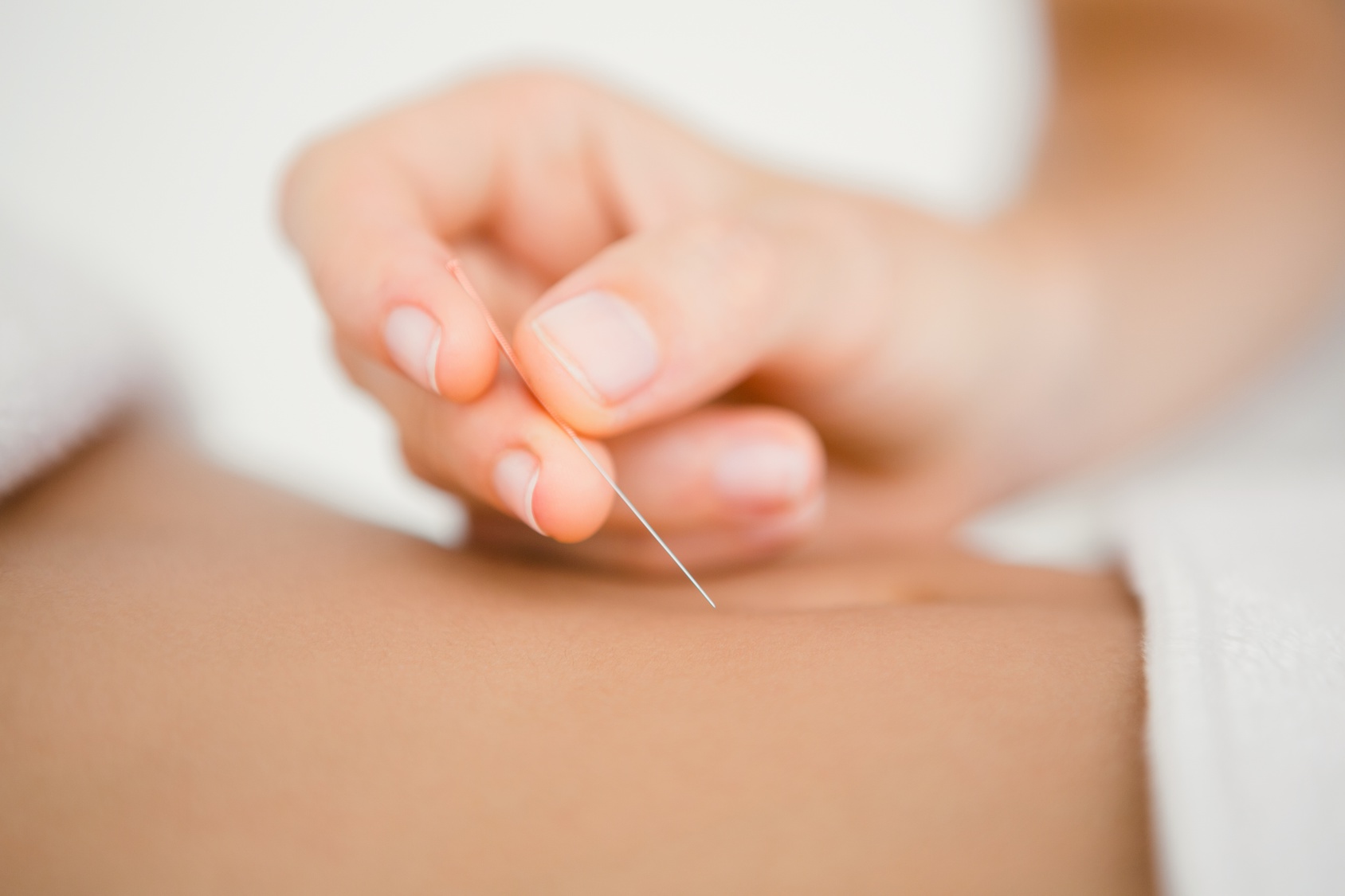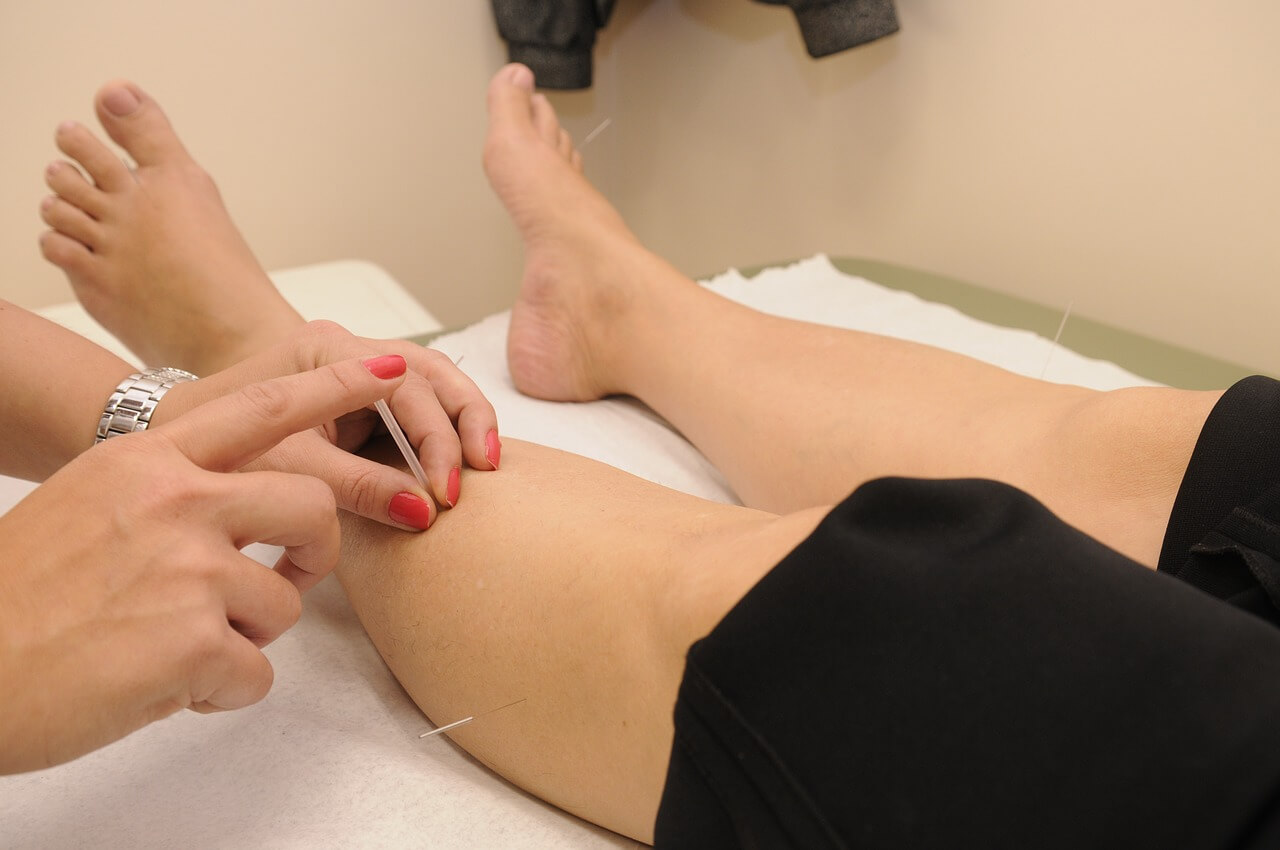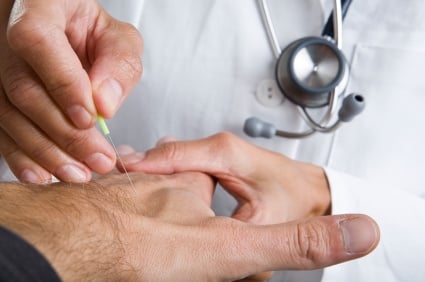Healing Happens with Acupuncture
Acupuncture, the ancient art of healing, has had a foothold in Eastern medicine for thousands of years, and is even rumored to have been practiced as far back as 4,000 years ago. While modern medicine often holds this method of healing under a microscope, analyzing its effectiveness, its history of success certainly is a testament to its tenure.
Today we here at Southwest Integrative Medicine will dive a little deeper into the origins and treatment processes of Acupuncture, its ideology, and ailments that can be treated with Acupuncture.
 A Brief History of Acupuncture
A Brief History of Acupuncture
As we mentioned before, the exact date of origin for Acupuncture is still a mystery for historians. What we do know is that the first text about the practice, written in approximately 2674 B.C.E., is called the Nei Ching Su Wen, and it involves philosophical questions and ponderings about medical concepts that are as relevant today as they were 2,000 years ago.
In comparison to Western medicine, where theories are presented and the current physiological facts are used to explain them, the Eastern methodology of Acupuncture has long been viewed as medieval and retrogressive. However, the more we examine the history behind acupuncture, and the context within which acupuncture theories were manifested, its validity and efficacy are increasingly illuminated. In fact, acupuncture is really very similar to modern medicine, in that it is based on cleared document treatment process that is based on subjective information, observation, analysis, and practice over thousands of years.
Western versus Eastern Medical Ideology
As noted, acupuncture is similar to western medicine in that they both have a process for both diagnosis and treatment. In both acupuncture and western medicine, symptoms are observed and used as information to support a diagnosis. Where the two forms of medicine veer is in the types of diagnosis and the information used for the daignosis. Chinese medicine puts equal weight on subjective information as objective information but Western medicine puts much less emphaiss on the subjective information. Where western medicine finds understanding in the visible, tangible, physiological condition, acupuncture draws diagnosis from a position of both sunjective, metaphysical, and physical. This is important because the acupuncturists wants to know things about your body that only you could know. This is as much h true today as it was 2000 years ago.
For example, a person with chronic intestinal issues would most likely be diagnosed with Irritable Bowel Syndrome (IBS) in western medicine. Because treatments surrounding IBS are always changing, their treatment of IBS would have looked very different even 50 years ago in comparison to today. In contrast, an acupuncturist would likely explain this condition as a Spleen-Chi Deficiency and the treatment for it would be the same today, as it was years ago. The treatments of conditions in eastern medicine mostly stay the same and instead there is a deepening of the knowledge and understanding of how these patters emergy in the human body. .
The Common Acupuncture Treatment Process
Acupuncture is effective in maintaining good health, and also in addressing a wide-range of health problems. Many patients seeking medical attention often use acupuncture as an alternative to western medicine, whereas some even use a combination of the two.
Evaluation
The process begins with an interview or evaluation with an acupuncturist or physician specializing in integrative medicines. In this consultation, you would go over your medical concerns and allow the acupuncturist to review how the different functions in the body are working and things like your pulse and your coloring, temperature, and texture at different parts of the body.
Treatment
Since acupuncture is rooted in the Ancient Chinese principle of Chi, where optimal health is achieved through free-flowing chi, all treatment will be based around realigning a patient’s chi. A person’s Chi is believed to flow through 12 defined pathways (plus two main ones), or meridians, that are all connected to vital and specific organs within the body. There are about 365 acupuncture points along these meridian pathways where blocked chi or dysfnctinal chi can be targeted and brought back to balance through the insertion of needles.
During your treatment, depending on the medical issue, the appropriate points along your meridians will be activated with a sterilized needle. The needles come in different lengths and gauges, but the majority are hair thin and made of stainless steel. These needles stay in place for about 30 minutes, but timing can fluctuate depending on the patient’s needs.
Fear of Needles Addressed
It is not uncommon for patients with a fear of needles to be apprehensive about the treatment, but once the needles are in place, they are generally not felt at all. In fact, many patients often experience a calming effect from the treatment and are pleasently surprised by the ease and comfort of the procedure, overall.
Common Ailments Treated with Acupuncture
Acupuncture is often used for a wide-variety of ailments and conditions. From injuries, to cancer treatment side effects, to chronic pain, acupuncture is an alternative way to healing and/or recovery. Some conditions can be reversed within a single treatment, while others require more treatments.
Here are just a few of the areas that acupuncture can address:
- Injury pain
- Shoulder pain, tennis elbow, rotator cuff tendonitis, knee issues
- Chronic pain
- Lower back pain, neck pain, headaches, arthritis, sciatica
- Neuropathy
- Side effects to cancer treatments
- Reproductive health issues
- Autoimmune diseases
- Digestive problems
- Gas, bloating, pain
- Mental health issues
- Insomnia, stress, anxiety, depression
Whether your beliefs are camped in the visible and tangible facts of western medicine, or the metaphysical-physical combination of eastern medicine, or even if your beliefs lie somewhere in the middle, the thousands of years of practice and results achieved through acupuncture cannot be denied.
If you are unsure if acupuncture is the right course of action for your medical needs, give our physicians here at Southwest Integrative Medicine a call to schedule a consultation.




















